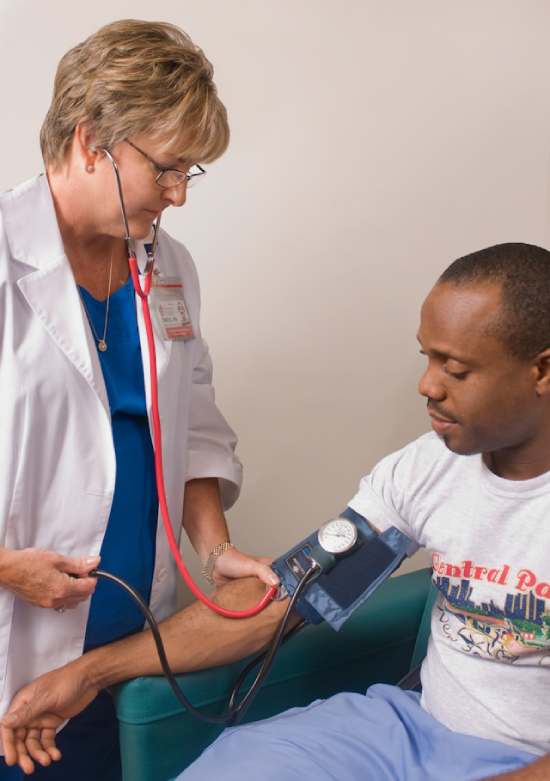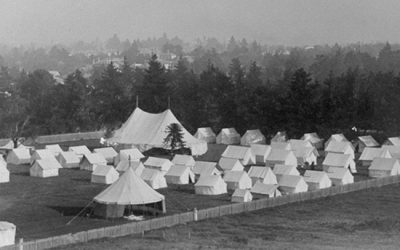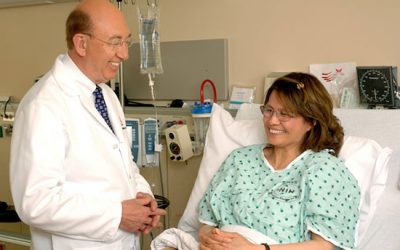A medical missionary in the Adventist Church is someone who cares for the medical needs of people as a way of showing the love of Jesus Christ. They may travel to another country, or even just serve in their hometown.
Medical missionaries come from various backgrounds and expertise, but they all share a passion for serving.
In this article, let’s find out more about these dedicated people. We’ll cover:
- What medical missionaries are
- Why Adventists emphasize medical mission work
- How Adventists approach this kind of work
- How to become a medical missionary
What medical missionaries are
Medical missionaries are licensed medical professionals who volunteer to help meet people’s medical needs, often in underprivileged communities or regions of the world.
They may be:
- Nurses
- Doctors
- Surgeons
- Dentists
- Physical therapists
- Medical students
- Trained volunteers
- Anyone with medical expertise
Sometimes, people within the Adventist Church describe medical missionaries more loosely as people who:
- Have some training and knowledge about health
- Know about natural or herbal remedies
However, the most well-known understanding of a medical missionary is someone who is a licensed professional, and they will be our focus for this page.
These missionaries might choose to travel to a community on the other side of the world to help, or they might help those in their own community. But the key is, they aren’t doing it for the money. In fact, they probably aren’t getting paid.
They want to help others as a reflection of Jesus’ ministry.
One of the greatest aspects of Jesus’ earthly ministry was His work to heal the sick, injured, and dying. Medical missionaries follow in His footsteps using the knowledge and training they’ve received.
Dr. Peter Landless, director of Adventist Health Ministries, sums it up this way:
“[Medical missionaries meet] people’s needs in a practical way by demonstrating God’s love and compassion.”1
They aren’t necessarily there to preach to their patients, but in a way, they are. Their care is a visible, hands-on demonstration of who God is.
Let’s see how medical missionaries became such an important focus in Adventism.
Why Adventists emphasize medical mission work

Photo by ThisisEngineering RAEng on Unsplash
Adventist Christians believe in the power of the medical missionary because of the immediate physical help they can provide—a different approach from regular evangelism.
By helping a person’s physical needs first as Jesus did, medical missionaries are taking a practical approach to evangelism that may resonate more deeply with people. When people experience the loving care of doctors, they glimpse how the doctors reflect what Jesus did for each of us by dying on the Cross.
We are coming to them, showing love and care, even if they don’t care at all about Jesus yet. That is the same attitude Jesus had toward the people He ministered to.
As we’ve already pointed out, Jesus Himself placed a heavy emphasis on healing during His earthly ministry. Often, He healed as He traveled, taught, and preached. A few well-known examples are:
- The man at the pool of Bethesda (John 5:1-9). The man had not been able to walk for 38 years. Jesus told him to rise, and immediately the man was healed.
- The ruler’s daughter (Matthew 9:18-26). This girl had died, but Jesus came, took her by the hand, and raised her back to life.
- The epileptic boy (Matthew 17:14-18). The disciples had tried to heal this boy, but they didn’t have enough faith. So Jesus performed this miracle.
- The blind man (John 9:1-7). This man had been blind from birth. Jesus put clay on his eyes and had him wash in a pool. The man could see from that moment on.
Jesus performed many miracles like these, resulting in the people “glorif[ying] the God of Israel” (Matthew 15:31).
In the same way, Adventists follow in Jesus’ footsteps, pointing their patients to Jesus, the Great Physician. This, in large part, stems from our long-time interest in health.
Where it all began
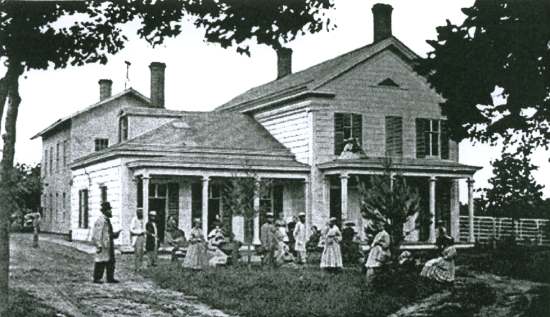
“The Western Health Reform Institute, the first Adventist clinic”
From its early years, the Adventist Church has valued a holistic lifestyle of caring for spiritual, physical, and mental health. Not long after the church’s founding, one of its leaders, Ellen White, received instruction from God on principles for physical health—from diet to exercise to sleep. She promoted these principles, encouraging church members to care for their health as a way of honoring God (1 Corinthians 10:31).
Not long after in 1866, the Adventist Church established the Western Health Reform Institute. This health center not only treated sickness but also taught patients how to live a healthier life.2 It was the first of many health institutions, including hospitals, clinics, and more. Adventists trained doctors, nurses, dentists, and other professionals to serve in these places, too.
As the Adventist mission field broadened to other continents, the church increasingly realized the importance of sending trained medical professionals to places with limited medical knowledge as a way of expanding their efforts in those locations.3 So, the concept of medical missionaries was born.
In the beginning, these missionaries followed the establishment of other Adventist missions in the Pacific Islands, Europe, Africa, and the Middle East.4
In the early 1900s, the General Conference—the leading body of the church—appointed a medical missionary department, with representatives from every continent.5 From then on, missionaries have traveled around the world to reach people, both on short-term trips and long-term residencies.
Today, Adventists operate:
- 230 hospitals and sanitariums
- 116 nursing homes and retirement centers
- 1,906 clinics6
These hospitals and clinics often provide free care for patients who wouldn’t otherwise be able to afford it. The goal is to help people and show them Jesus.
Let’s get a look at some of the details.
How Adventists approach medical mission work
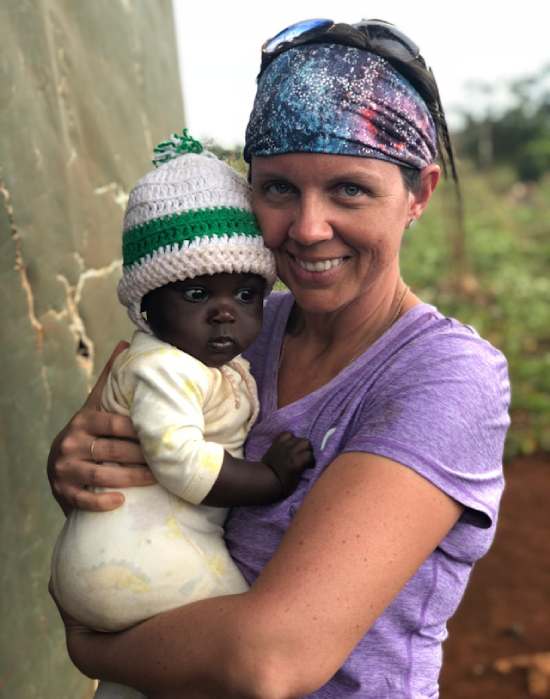
Photo by TopSphere Media on Unsplash
Medical missionary work can take many different shapes. On the international level, trips to other countries like China, India, or Zambia are often organized as short-term or long-term posts.
A short-term medical mission trip may include setting up a temporary clinic or establishing a permanent one—but the trip itself is only a few weeks. Licensed and trained medical workers are always present on these trips, but sometimes students or non-medical volunteers go too. Under the licensed professionals’ supervision, the others learn how to do simple tasks to help with the medical work.
In some cases, Adventist universities or high schools will conduct a trip with a group of regular students. While helping others, the students get to experience firsthand the benefits of treating people and portraying Jesus’ love. This may inspire them to become future missionaries or pursue a degree in nursing or another branch of medicine.
Long-term mission trips often include the establishment of mission hospitals or clinics in a certain area, with teams of missionaries who stay for many years to run them.
But medical mission work isn’t only an international effort.
Medical missionaries may even serve their own hometowns through various initiatives. Sometimes, a church will organize a health seminar, inviting members of the community to hear a doctor share about a healthy lifestyle and disease prevention. The church may offer healthy cooking classes or exercise programs, as well.
This is what makes Adventist medical missionary work unique. No matter the situation, the missionaries seek not only to treat the illness but also to teach the patients how to develop healthy habits and improve their quality of life—physically and spiritually.
While Adventist medical missionaries do perform their work out of a desire to share Jesus’ love, they never try to force or pressure people to accept their beliefs. We highly value religious liberty, and accepting Jesus as Savior is always a personal choice (Revelation 3:20).
How to become a medical missionary
While there isn’t one specific Adventist medical missionary organization, there are plenty of opportunities available.
Many times, you can find an opportunity through local churches, which may sponsor trips or individuals or take part in regular trips. Contact the pastor of your local church for more information, and he can guide you to a trip.
After signing up for a trip, you may have to go through some preliminary training or overall briefing of the assignment.
Adventist schools, like Loma Linda University, or organizations, including ADRA (Adventist Development and Relief Agency) and Adventist Health International, also provide medical mission opportunities. These trips may include doctors, nurses, techs, assistants, and dentists for a rounded care team.
Adventist programs not directly associated with the church, such as Wildwood Center for Health Evangelism, also organize trips and offer training courses for candidates to take.
Many times, general mission trips also have a medical component, such as those organized by Maranatha, an organization that funds and carries out construction projects. Be sure to contact the organizers to ask about opportunities for medical work on a trip.
For many official medical trips and roles as long-term medical missionaries, your organization may request a resume or require you to take training classes to ensure that you’re qualified for the position.
Like any mission trip, medical missionary trips cost money. Your church or Adventist school may support part of the bill, but in most cases, you will have to fund a good chunk of it, if not the whole cost. Often, you can fundraise together with other volunteers. Similarly, long-term missionaries are typically not paid, but those with multiple-year posts may receive a small amount to help with living expenses.
Medical missionaries—reflecting Jesus’ ministry
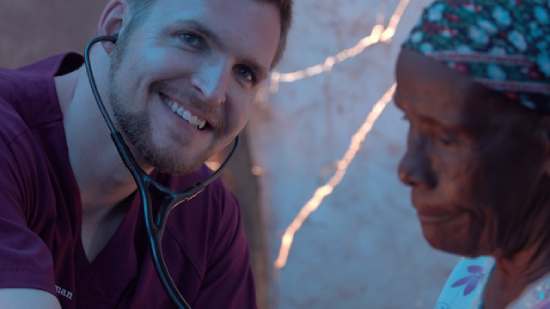
Photo by TopSphere Media on Unsplash
Becoming a missionary and traveling to a foreign place with a different culture, people, and even food, can be challenging—even for a little while. It can be hard for missionaries to adjust and help people at the same time.
Nonetheless, the rewards of seeing people cared for and happy can make the challenges worth it for a medical missionary.
This is Jesus’ love in action. They may not be sharing the amazing news of the Gospel directly, but they are representing who the Gospel is all about: Jesus and His endless love and sacrifice. And that can be just as powerful as a direct witness.Interested in what Adventists believe about medicine?
Related Articles
- Landless, Peter, “What Is Adventist Medical Missionary Work?” SID Live, November 27, 2018. [↵]
- Spicer, William A., “Relation of Our Health Work to the Third Angel’s Message, and the Place of the Medical Department in Our Movement,” The Advent Review and Sabbath Herald, May 17, 1923, p. 3. [↵]
- Ibid.. [↵]
- Robinson, Dores Eugene, The Story of our Health Message, pp. 285-286. [↵]
- Spicer, “Relation of Our Health Work to the Third Angel’s Message.”. [↵]
- Sanchez, Angelica, “Chosen for Mission: Celebrating 160 Years of the Seventh-day Adventist Church,” Adventist News Network. [↵]
More Answers
What Is a Seventh-day Adventist Camp Meeting?
Although camp meetings didn’t begin with the Seventh-day Adventist Church, they’re as much an Adventist thing as haystacks.
Camp meeting is an extended event for Adventists (and non-Adventists) of all ages to gather and participate in spiritual seminars and activities. During the event, attendees often camp in tents, campers, or RVs.
How to Join the Seventh-day Adventist Church
Whether you heard about the Seventh-day Adventist Church through a traveling evangelist, during your online searches, or through a loved one or relative, you might be considering joining yourself.
How Do Adventists Do Baby Dedications?
For Christians, dedication ceremonies for babies, also for older children, are an important time for parents and the church. It’s a special part of the worship service when parents present their young children to God and the church family. Both parents, along with the congregation, regard this as a solemn promise to be a Christ-like example to the child.
Do Adventists Celebrate Communion and Foot Washing?
Like many Christian denominations, Adventists regularly participate in communion, also referred to as the “Lord’s Supper” or the “Last Supper.” They also practice foot washing (John 13:1-20), or the “ordinance of humility,” during the service—which isn’t as common.
What is the Concept of “Present Truth” and Why is it Important?
Present truth is the principle that certain biblical truths are relevant to God’s people at specific times in history. God sends the Holy Spirit to reveal truths that help us better understand how to interpret and apply His Word in a present moment.
Do Seventh-day Adventists Celebrate Easter
Yes, many Seventh-day Adventists do celebrate Easter.
Does the Adventist Church Have Youth Ministry Programs?
The Seventh-day Adventist Church has been organizing and operating youth ministry programs since 1879.
In our opinion, youth ministry is one of the most important ministries a church can have.
Do Adventists Celebrate Birthdays?
Yes, most Seventh-day Adventists do celebrate birthdays because we see them as excellent reminders of the life God has blessed us with. And we celebrate them the same way everyone else does—with friends, family, presents, and a special meal.
What Do Adventists Offer for Young Adults?
In recent years, the age group often classified as “young adults” has been trickier to engage. It’s been a significant concern for Christian churches around the world. Though interestingly enough, similar observations regarding young adults have been coming up in conversations about the economy, the entertainment industry, politics, and more.
Do I Need to be an Adventist to be Saved?
The answer to this question is simply, “no.”
When it comes to salvation in Jesus Christ, all that is required of a person is to acknowledge Jesus’ sacrifice for us, believe that He has saved us, and claim the free gift of salvation that is always available to us. Salvation is not based on denomination.
Do You Have to Be Vegetarian to Be Adventist?
Of course not. Membership in the Seventh-day Adventist Church has never included any dietary requirements. However, there might be some reasons people might think that. So many Adventists are vegetarians or even vegan, and a plant-based lifestyle has many health benefits.
All About Seventh-day Adventist Colporteurs
The Seventh-day Adventist Church uses a variety of methods to spread the hope of the gospel to the world. One of these ways is through colporteuring, also called “canvassing” or “literature evangelism.”
What Is an Adventist Book Center (ABC)?
When you walk into any one of the many Adventist Book Center (ABC) locations, chances are you’ll be greeted by pleasant gospel music in the background, friendly employees, and row after row of Christian books, movies, Bibles, study guides, kids’ games, and more.
Do Seventh-day Adventists Celebrate Holidays?
Wondering whether your Adventist classmate or coworker keeps the same holidays you do? Perhaps you want to include them in some festivities, but you also want to respect their beliefs. Thus, you’re unsure of how to navigate the holiday question. Will they accept your invitation to the office Christmas party?
The Adventist Haystack (It’s Not What You Think) + 4 Recipes
Haystacks are basically a taco salad—with an Adventist spin on it! Most versions are vegetarian and offer an endless combination of tasty toppings. We eat them often because they’re healthy, scrumptious, and easy to make.
Do Seventh-day Adventists Believe in Medical Care?
The Seventh-day Adventist Church believes in and supports evidence-based medical care. In fact, medicine has played a significant part in our history, and today we run a major health system with hospitals, medical schools, and clinics throughout the world.
All about Adventist Elementary Schools
The Seventh-day Adventist Church operates the largest Protestant education system in the world. A big part of this system is our K-8 elementary schools, or primary schools, as they’re known in other parts of the world.
What Are Pathfinder and Adventurer Clubs?
Like the boy or girl scouts, Pathfinders and Adventurers learn about nature and life skills. But what makes these clubs special is their purpose to bring young people closer to Jesus.
A Look at Adventist Colleges and Universities
On the outside, Seventh-day Adventist universities may not look much different than other college campuses. But the real differences are beneath the surface.
What Is ASI (Adventist-Laymen’s Services and Industries)?
ASI, which stands for Adventist-laymen’s Services and Industries, is a membership-based organization that provides support for Seventh-day Adventist laypeople (Adventist professionals who aren’t pastors).
What Are Adventist Evangelistic Meetings?
The Seventh-day Adventist Church puts a huge emphasis on sharing the gospel through evangelism, or sharing the gospel through preaching, teaching, and testimony. One of the ways we accomplish this is by organizing public events called evangelistic meetings.
Christian Summer Camps—A Cherished Adventist Ministry
School’s out, the sun’s shining, and your kids are thrilled to have the summer ahead of them. Then three days in, you hear, “I’m bored…”
Do Adventists Have Their Own Bible?
Adventists have some unique beliefs—you might be able to name some of them right now. The seventh-day Sabbath. Death as a sleep. Hell as nonexistence.
What Is Vespers?
Friday rolls around, and you’re spending time with your Adventist friends or relatives when they mention they’re going to vespers tonight.
Adventist Pastors
What is the role of a pastor in the Adventist Church? The position itself, at least as far as a local congregation is concerned, is not much different from that of pastors in other protestant denominations.
The Leadership Structure of the Seventh-day Adventist Church
The Seventh-day Adventist Church has a representative form of structure that connects its 90,000-plus congregations across the globe and gives its members a part in decision-making. Though the Church was incorporated in 1863, this system came about during the church’s reorganization from 1901 to 1903. It includes four levels of organization.
What to Expect When You Go to an Adventist Church
If you’re attending an Adventist church for the first time, you may wonder what it’s really like. While each Adventist church is unique in its collective personality and local culture, Adventist church services are generally similar to most other Protestant church services.
Adventist Education
Seventh-day Adventists have historically upheld the importance of a well-rounded, high-quality education. Instead of a one-size-fits-all approach to teaching and learning, the Adventist Education system operates on the principle of educating the “whole” person.
Evangelism
Evangelism is simply sharing the truths of the Bible with someone else. And Adventists are all into it.
Didn’t find your answer? Ask us!
We understand your concern of having questions but not knowing who to ask—we’ve felt it ourselves. When you’re ready to learn more about Adventists, send us a question! We know a thing or two about Adventists.

